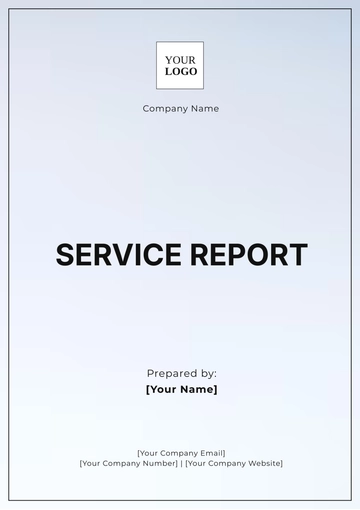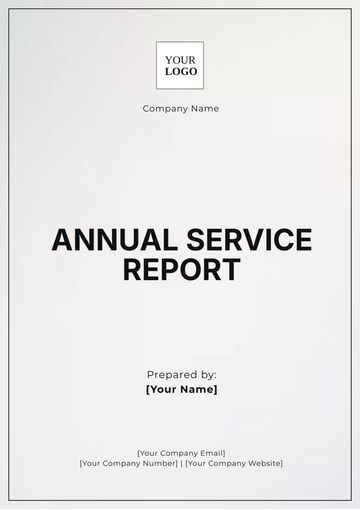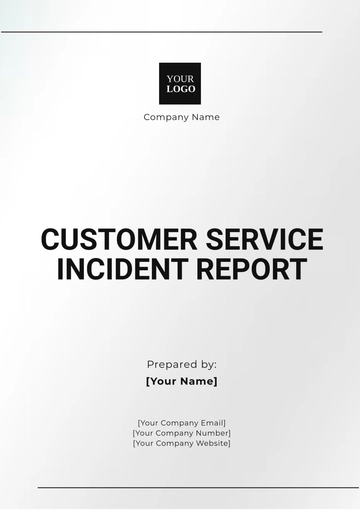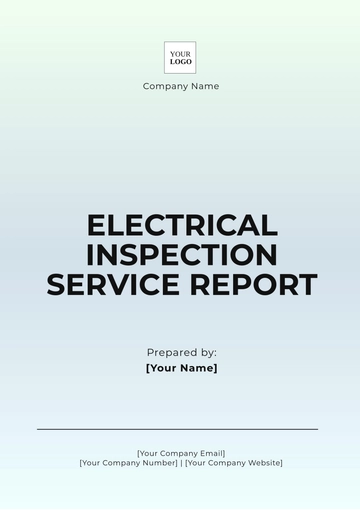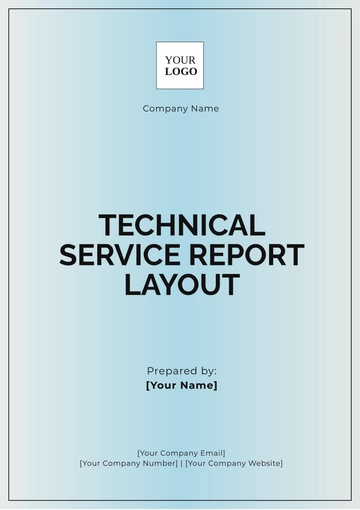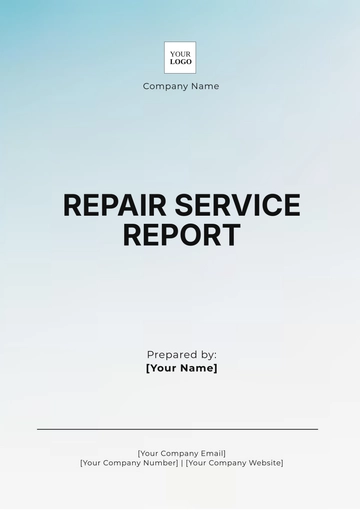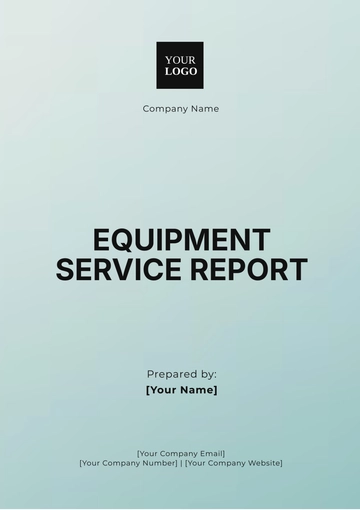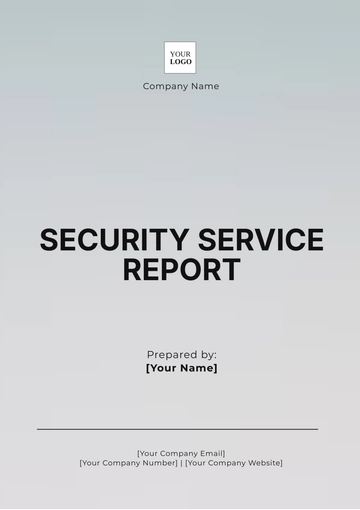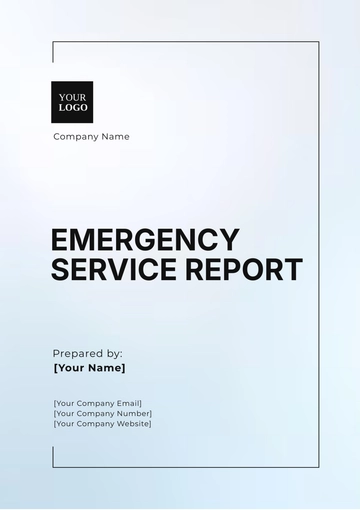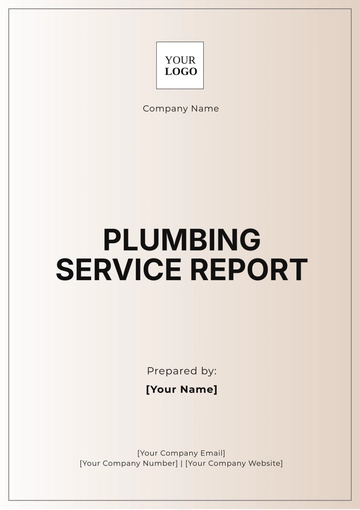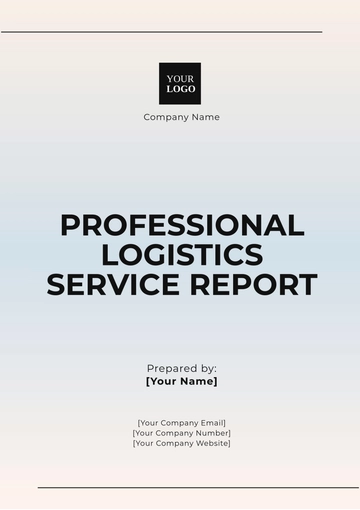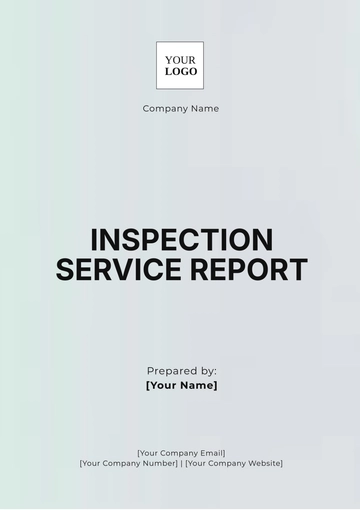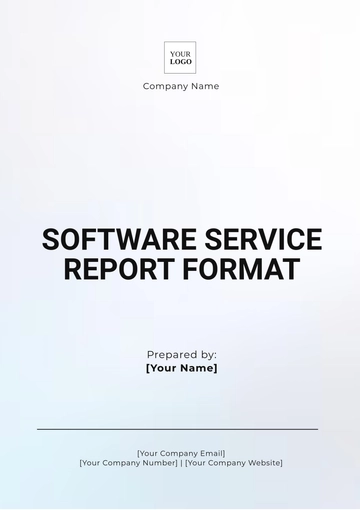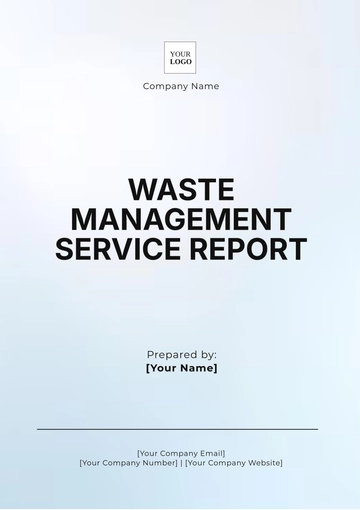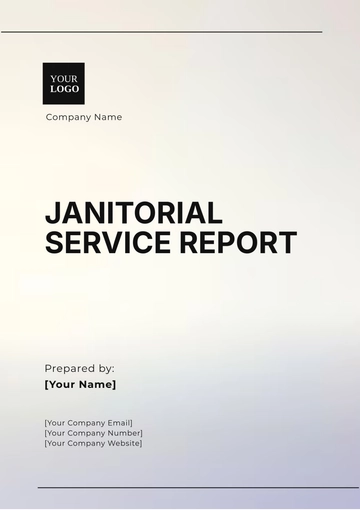Free Professional Logistics Service Report
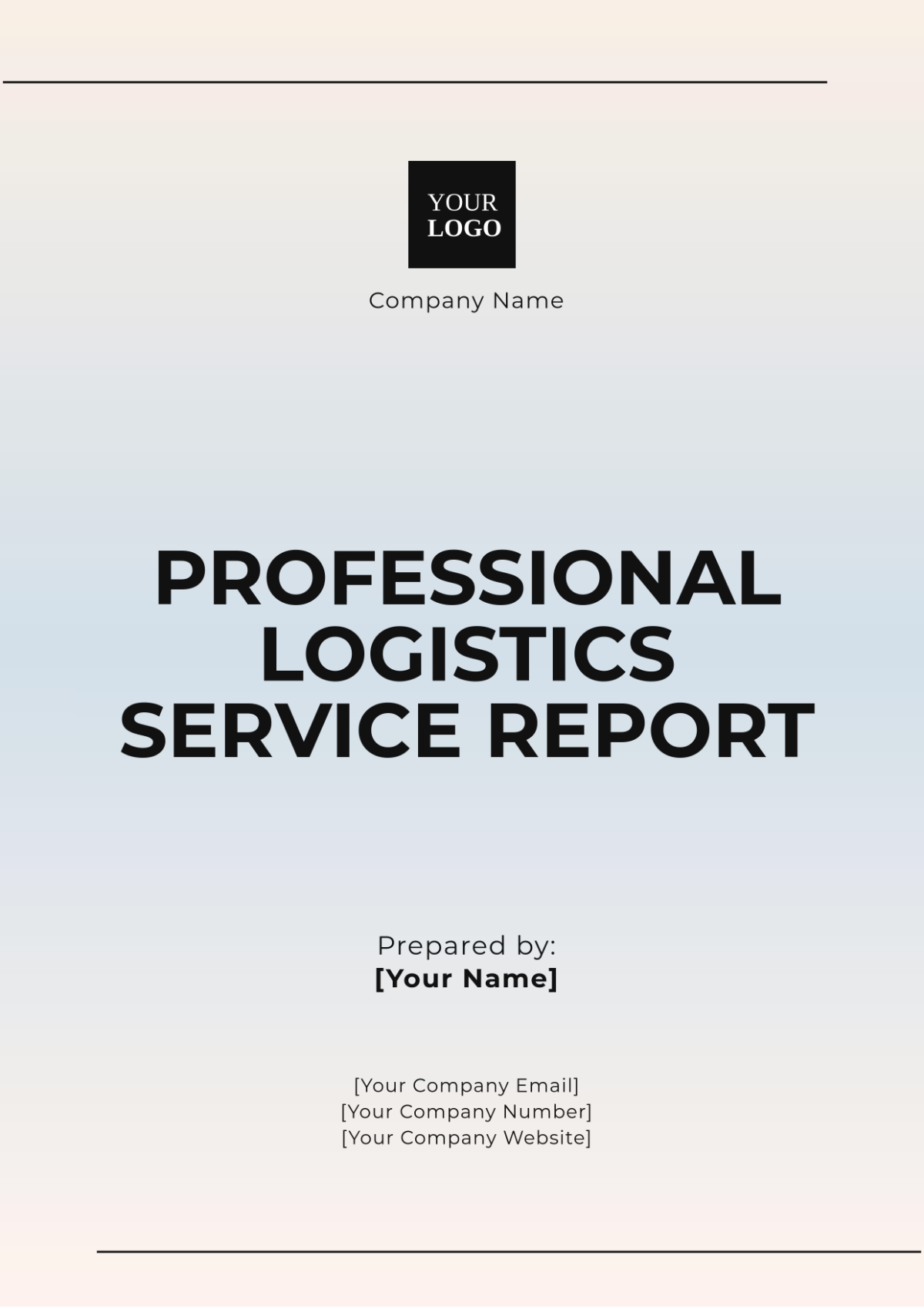
Introduction
In today's fast-paced business environment, efficient logistics services are crucial for ensuring seamless supply chain operations. This report, prepared by [Your Company Name], provides an overview of the logistics services offered, performance metrics, challenges faced, and recommendations for improvement.
Overview of Logistics Services
The logistics services encompass a range of functions, including:
Transportation Management: Coordinating timely and cost-effective movement of goods.
Warehousing Solutions: Offering storage to improve order fulfillment.
Inventory Management: Tracking stock to balance availability and minimize excess.
Customs Clearance: Ensuring smooth cross-border transit through regulatory compliance.
Performance Metrics
To assess the effectiveness of logistics services, the following key performance indicators (KPIs) are monitored:
Metric | Description |
|---|---|
On-Time Delivery Rate | Percentage of deliveries made on or before the scheduled date. |
Order Accuracy | Accuracy of orders fulfilled per customer specifications. |
Inventory Turnover | Rate of inventory sold and replaced over a period. |
Cost Per Shipment | The average cost incurred for transporting goods. |
Summary of Metrics
Metric | Current Performance | Target Performance |
|---|---|---|
On-Time Delivery Rate | 92% | 95% |
Order Accuracy | 98% | 99% |
Inventory Turnover | 6 times/year | 8 times/year |
Cost Per Shipment | $150 | $130 |
Challenges Faced
Despite strong performance metrics, several challenges hinder optimal logistics operations:
Supply Chain Disruptions: Unforeseen events, such as natural disasters or global pandemics, have caused delays and increased costs.
Rising Transportation Costs: Fluctuations in fuel prices and labor shortages contribute to increased logistics expenses.
Technology Integration: The need for advanced technology to streamline operations and improve data analytics capabilities remains a challenge.
Recommendations
To enhance the efficiency and effectiveness of logistics services, the following recommendations are proposed:
Implement Advanced Technologies: Invest in logistics management software to improve tracking, inventory management, and communication across the supply chain.
Diversify Transportation Options: Explore alternative transportation modes and routes to mitigate risks associated with supply chain disruptions.
Enhance Workforce Training: Provide regular training programs for staff to keep them updated on best practices and new technologies in logistics management.
Monitor and Adjust Strategies: Regularly review performance metrics and adapt strategies based on market conditions and operational challenges.
Conclusion
Effective logistics services are integral to the success of supply chain operations. By focusing on performance improvement and addressing current challenges, logistics providers can enhance their service offerings and deliver greater value to clients. Continued investment in technology and workforce development will be essential for sustaining competitive advantage in the evolving logistics landscape.
- 100% Customizable, free editor
- Access 1 Million+ Templates, photo’s & graphics
- Download or share as a template
- Click and replace photos, graphics, text, backgrounds
- Resize, crop, AI write & more
- Access advanced editor
Optimize your logistics operations with the Professional Logistics Service Report Template from Template.net. This fully editable and customizable template allows you to document and manage logistics activities with precision. Its structured design helps you track deliveries, inventory, and performance, ensuring clear communication with your team and clients. Perfect for logistics professionals, this template streamlines reporting, making it easier to maintain organization and present data in a professional, polished format.
You may also like
- Sales Report
- Daily Report
- Project Report
- Business Report
- Weekly Report
- Incident Report
- Annual Report
- Report Layout
- Report Design
- Progress Report
- Marketing Report
- Company Report
- Monthly Report
- Audit Report
- Status Report
- School Report
- Reports Hr
- Management Report
- Project Status Report
- Handover Report
- Health And Safety Report
- Restaurant Report
- Construction Report
- Research Report
- Evaluation Report
- Investigation Report
- Employee Report
- Advertising Report
- Weekly Status Report
- Project Management Report
- Finance Report
- Service Report
- Technical Report
- Meeting Report
- Quarterly Report
- Inspection Report
- Medical Report
- Test Report
- Summary Report
- Inventory Report
- Valuation Report
- Operations Report
- Payroll Report
- Training Report
- Job Report
- Case Report
- Performance Report
- Board Report
- Internal Audit Report
- Student Report
- Monthly Management Report
- Small Business Report
- Accident Report
- Call Center Report
- Activity Report
- IT and Software Report
- Internship Report
- Visit Report
- Product Report
- Book Report
- Property Report
- Recruitment Report
- University Report
- Event Report
- SEO Report
- Conference Report
- Narrative Report
- Nursing Home Report
- Preschool Report
- Call Report
- Customer Report
- Employee Incident Report
- Accomplishment Report
- Social Media Report
- Work From Home Report
- Security Report
- Damage Report
- Quality Report
- Internal Report
- Nurse Report
- Real Estate Report
- Hotel Report
- Equipment Report
- Credit Report
- Field Report
- Non Profit Report
- Maintenance Report
- News Report
- Survey Report
- Executive Report
- Law Firm Report
- Advertising Agency Report
- Interior Design Report
- Travel Agency Report
- Stock Report
- Salon Report
- Bug Report
- Workplace Report
- Action Report
- Investor Report
- Cleaning Services Report
- Consulting Report
- Freelancer Report
- Site Visit Report
- Trip Report
- Classroom Observation Report
- Vehicle Report
- Final Report
- Software Report
